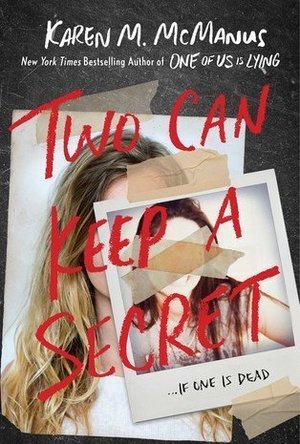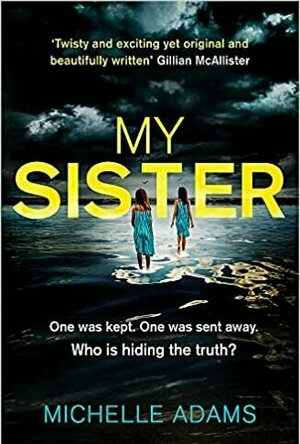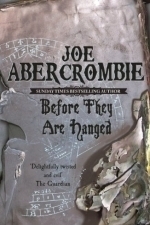Heather Cranmer (2721 KP) rated Two Can Keep a Secret in Books
Jan 5, 2019
The synopsis of Two Can Keep a Secret really drew me in. I enjoyed they mystery behind who had killed the first homecoming queen, Lacey, and who was responsible for the current missing homecoming queen nominee as well as the mystery surrounding Ellery's and Ezra's aunt Sarah. Every time I thought I had figured out who the culprit was, another spanner was thrown into the works, and I would suspect someone else. This book definitely kept me guessing throughout, and I was wrong about who was responsible. The plot twist are great, and I can't say that I ever saw any of the plot twists coming.
The pacing starts out slow up until Chapter 14, and I found myself wondering if I had made a mistake with reading Two Can Keep a Secret. Once I got to Chapter 14, the pacing picked up, and I found myself fully immersed in what was happening. Not once did the pacing become too slow again. I couldn't wait to find out what would happen next.
The characters in Two Can Keep a Secret were all believable and fully fleshed out although I would have liked to know more about Sarah. There was some closure to Sarah's disappearance, but I felt like more information would have been nice. My favorite characters were Malcolm, Ellery, and Katrin. I loved watching Malcolm's and Ellery's relationship bloom. There was just something about Kartin that I really liked. I also liked the character of Brooke.
Trigger warnings for Two Can Keep a Secret include some underage drinking, profanities, some sexual innuendos, violence, attempted murder, and murder.
Overall, Two Can Keep a Secret isn't as good as One of Us Is Lying by Karen M. McManus. However, it's still a great read. It has some great plot twists and well written characters. I would definitely recommend Two Can Keep a Secret by Karen M. McManus to those aged 16+ who love a good mystery.
--
(A special thank you to Delacorte Press for providing me with a hardback of Two Can Keep a Secret by Karen M. McManus in exchange for an honest and unbiased review.)

Mathematics Explained for Primary Teachers
Derek Haylock and Ralph Manning
Book
Get access to an interactive eBook* when you buy the paperback! (Print paperback version only, ISBN...
BookInspector (124 KP) rated My Sister in Books
Sep 24, 2020
The main character in this novel is Irini (love, love the name), a successful doctor with hip problems, which left her slightly limping. All her life she was running from her sister – Elle. Why? Because Elle is dangerous and unpredictable. I really loved the characters which were chosen for this book. I think they were very original, charismatic and supported each other very nicely. I really liked Irini and her life story, but it is very hard not to admire Elle, in some sort of weird way. Her character has charm, her personality is very strong, her actions, masterful manipulations because she is a psychopath. It was very interesting to read about this connection which Irini and Elle shared, they can’t be together but they need each other. You know it will destroy your life, but you still need it… All this was told while sharing Irini’s experiences from the past, which I found absolutely amusing and very intriguing to read.
The narrative of this novel is very gripping. Page after page, the author brought in a twist or unexpected turn, leaving me more and more interested in what will happen next. The whole plot was told from Irini’s perspective, and even though it was enough to make it an interesting read, I would have loved to read Elle’s perspective as well. I think it would have made this book even more interesting and would’ve answered more questions, and at least for me, it is always interesting to read what psychopaths think. Sometimes I got tired of this constant “Why did they give me away?” question. For me, in some places, it was quite repetitive and not always necessary.
The writing style of this novel is very creative and smartly thought through, leaving some cliffhangers, which are still bothering me a little. The chapters are a very decent length and it didn’t drag for me because the plot has sucked me in. I do not recommend it for young readers, as it contains some mild violence, drugs and alcohol. I am not fully satisfied with the ending of this book, even though it answered the main questions of this novel, it still has unresolved mysteries, which were left with hypothetical explanations.
So, to conclude, I would strongly recommend this dark and gripping thriller, filled with strange sisterly love, very strong and charismatic characters and very well thought through and intriguing plot, uncovering new secrets with every chapter. Enjoy
David McK (3702 KP) rated Before They are Hanged: The First Law: Book Two in Books
Jan 28, 2019
This is also a true sequel to the previous, in that if you hadn't read the earlier you wouldn't have a clue what was going on/who was who. As before, this pretty much jumps between characters chapter by chapter, while the novel is also split into two distinct sections, with the split coming roughly at around the halfway mark with the fall of Dagoska after the torturer Superior Glotka is recalled.
Of them all, I have to say, I found 'his' chapters to be the most interesting, in particular his continued snarkiness to any and all around him.
I also found this to be very much a bridge novel - after being introduced to the characters in [b: The Blade Itself|68616|The Blade Itself|Marcus Sakey|https://d.gr-assets.com/books/1437443720s/68616.jpg|1002512], a lot of this seemed to be setting the scene for what-I-imagine-will-be the events in [b: The Last Argument of Kings|944076|Last Argument of Kings (The First Law, #3)|Joe Abercrombie|https://d.gr-assets.com/books/1302062699s/944076.jpg|929012].
However, I need a break from all the darkness now for a while!
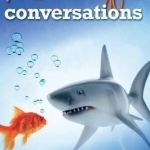
Meaningful Conversations
Book
A holistic overview of the essential leading methods of techniques and a hands-on guide for business...

PMP: Project Management Professional Exam Study Guide: Updated for the 2015 Exam
Book
The ultimate PMP(R) exam prep guide, updated for the 2015 exam PMP(R) Study Guide, 8th Edition is a...
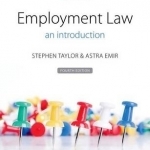
Employment Law: An Introduction
Book
Employment Law 4e is the most complete and accessible introduction to the subject, suitable for...
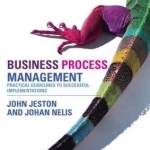
Business Process Management
Book
Business Process Management, a huge bestseller, has helped thousands of leaders and BPM...

Introduction to Structural Equation Modeling Using IBM SPSS Statistics and EQS
Book
This student orientated guide to structural equation modeling promotes theoretical understanding and...

The Garden Source: Inspirational Design Ideas for Gardens and Landscapes
Andrea Jones and James Van Sweden
Book
This is a must-have sourcebook for anyone with a garden looking for design ideas. Hundreds of colour...
